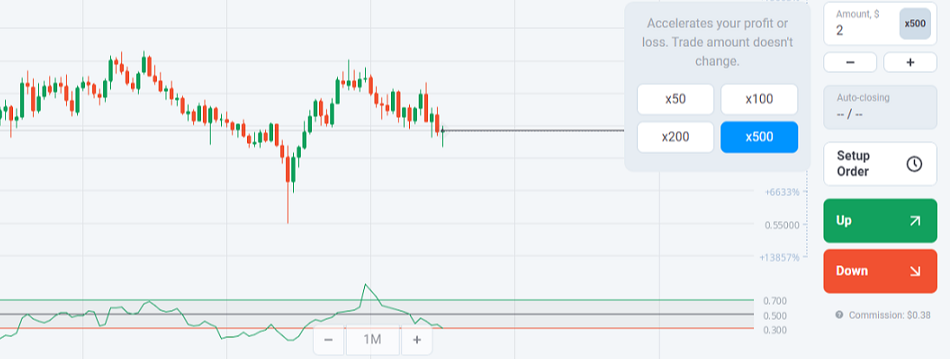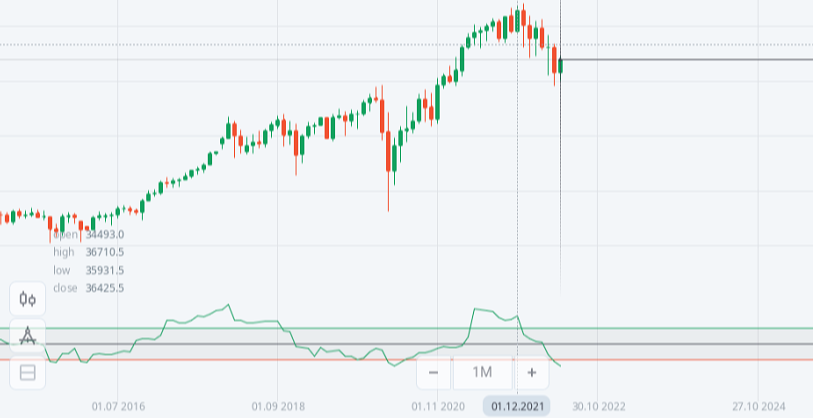Want to know some truths about trading? Regrettably, the trading world is one of the spheres with many trading myths – things that sound like facts but are not. Whether you just started or are an experienced investor, it takes time to identify between valid and misleading information. Your time is precious. I’ll tell you about five common myths you might often hear, so you can avoid the same frustration many investors run into.
Whether you just started or are an experienced investor, it takes time to identify between valid information and trading myths. It could take days, months, or even years to weed out truth from fiction. Many day traders have spent days and nights trying to test the reliability of some trading tips we pick up on the internet, but time is money. Here, we will share five trading myths you might hear often. Hopefully, you can avoid the same frustration many investors run into. Interact with the underlined words and green dots to get additional details and explanations.
Trading Without Emotion
Emotion is bad for trading, that’s what many trading coaches claim. Is it possible to be involved in day trading without being emotional at all? We’re just human and humans do have emotions. Full stop. This trading myth may lead you to find ways to kill your emotion, and I can assure you it’s a bad idea to do this.
Do not let this trading myth change you into a robot! Anger, sadness, and excitement will always be with us, and an imbalanced proportion of any of these emotions may push you nearer to loss. It’s ok to feel upset once in a while after a losing trade. Just don’t let yourself get carried away with it.
A burst of anger should be followed by seconds or minutes to calm down before we start again. To gain control of your emotions during trading, you need some practice first, and physical exercise is the best way to do it. Jog, walk, swim, or do squats to unleash your anger.
1:1 Reward to Risk Ratio Is Gambling
In simple words, a reward-risk ratio of 1:1 means a trader is willing to risk the same amount of funds they invest in a position. For example, you opened a buy position of $100 in McDonald’s because you believed its price would go up, but it didn’t happen. Instead, the price went down further – $100 gone. ‘Oh my, it’s gambling!’ some traders may think so. Still, a few traders believe this is not a day trading myth since they are confidently aware of their risk.
Not every trader prefers to risk $100 in their attempt to get a $100 profit, as it may sound scary for beginners, too. If you are not ready to lose that much and prefer the safe side, you can try a reward-risk ratio of 3:1 or even 2:0 for a start. Here’s what you need to know about calculating the reward-risk ratio. Commonly used formula to determine the ratio is: (Entry Point – Stop Loss Point)/(Profit Target – Entry Point)
For example, during Earnings Season, you open a buy position in McDonald’s for $100 at 257.82 because you believe its price will go up upon report release. You set stop loss point in 257.72, with profit target at 258.07, so, (257.82 – 258.72) / (258.07 – 257.82) = 0.10 / 0.25 = 0.4. 0.4 is your risk-ratio reward, safe enough to start without too much risk.
As time goes by, you will gain knowledge and confidence to see for yourself that a reward-risk ratio of 1:1 is not a trading myth. Rather, it’s a bold method to bring you higher profit.
Leverage Is a Waste of Your Deposit
Leverage is a trading mechanism allowing a trader to increase his trade size with some funds lent by the broker. Some traders believe that leverage (also known as a multiplier) is bad because all of our deposit funds will be gone instantly as soon as the market moves against our trades. The anxiety of losing money has made this idea a common myth among traders, but that is not always true. Leverage is advantageous since traders with less cash can increase their trading power. Nevertheless, precise money and risk management is required to prevent a trader from making a dangerous decision, such as leveraging all of their funds in a single trade.

With Olymp Trade, you trade can be leveraged up to x500. But, be careful.
The good news is that Olymp Trade has a multiplier unlike any other. It is available in Forex trading mode, and different assets may have various multiplier restrictions. Beginners are not advised to use higher multipliers during their trading debut with leverage. It is better to choose the lowest.
Moreover, Olymp Trade multipliers don’t allow your loss to exceed the trade size itself. So, don’t let this trading myth keep you from making the most of Olymp Trade’s multiplier. Read more about multipliers as leverage in Forex here.
Shorter Time Frames Are Rigid
A young trader once said, “The lower the time frames, the less accurate the trade set up becomes.” This is another day trading myth that may sound familiar to you. Some traders find it difficult to achieve satisfying results with shorter time frames, while some other experienced traders say higher time frames are better as they will filter the market’s noise.
This opinion is likely shaped by the nature of the trading chart itself. Since the price looks wilder on shorter time frames, you will need to think harder to forecast.
The truth behind the myth is similar to the ‘can trading make you rich’ question. Trading can’t make you rich if you don’t set a trading goal, daily target, and strategies for getting there. Higher time frames could bring nothing, except we pay attention to other factors that also play a significant role in our trading success – namely, fundamental and technical analysis. Shorter time frames are not that hard for those who like investing but don’t want to wait too long to see the result. This happens only after diligent study on what it takes for successful trading.
What Comes Down Must Go Up
We’ve seen these ups and downs daily on the trading chart. Deep declines in commodity prices, especially oil, during the COVID-19 pandemic have led to prominent growth. As for indices, the situation is quite the opposite since the Fed raised the key interest rate not long ago. Any price that comes down will eventually rise, and vice versa. So, how could it be a trading myth when it’s real? See the graph below.

The Dow Jones has been declining since December 2021, and has not recovered yet.
While the ups and downs are recurrent in trading, we will never know precisely when the tide will change its course. If you make an up trade and the price moves downward suddenly, don’t pretend that it’s normal, ‘yeah, it will be going up, no worries’, and you don’t feel it’s necessary to set a stop loss. You have put your belief in a trading myth, which is risky behavior.
Instead, never leave stop loss, regardless of your trade size. In the Olymp Trade platform, you can also set a trailing stop loss to protect your balance – a stop loss that follows the asset price movement.
Conclusion
Trading is a wide-open opportunity for everyone to make a good income and a better life. Like any other business, it takes long hours of study and practice to achieve the best results. We seek good advice everywhere that provides a clear guide to a better end in trading, but we must be careful not to stick to some old trading myths that may lead us farther from profits.
Remember, there is no such thing as one size fits all in trading. You probably have met someone who shared these trading myths with you and started questioning your own approach.
If this sounds like what you've been at now, then it's time to take some rest, recharge your energy, and get back to studying from square one. Just follow reliable sources of info like Olymp Trade’s Blog, check the Help Center to find answers to all your questions, and, of course, practice! That’s the best way to debunk all the trading myths.











